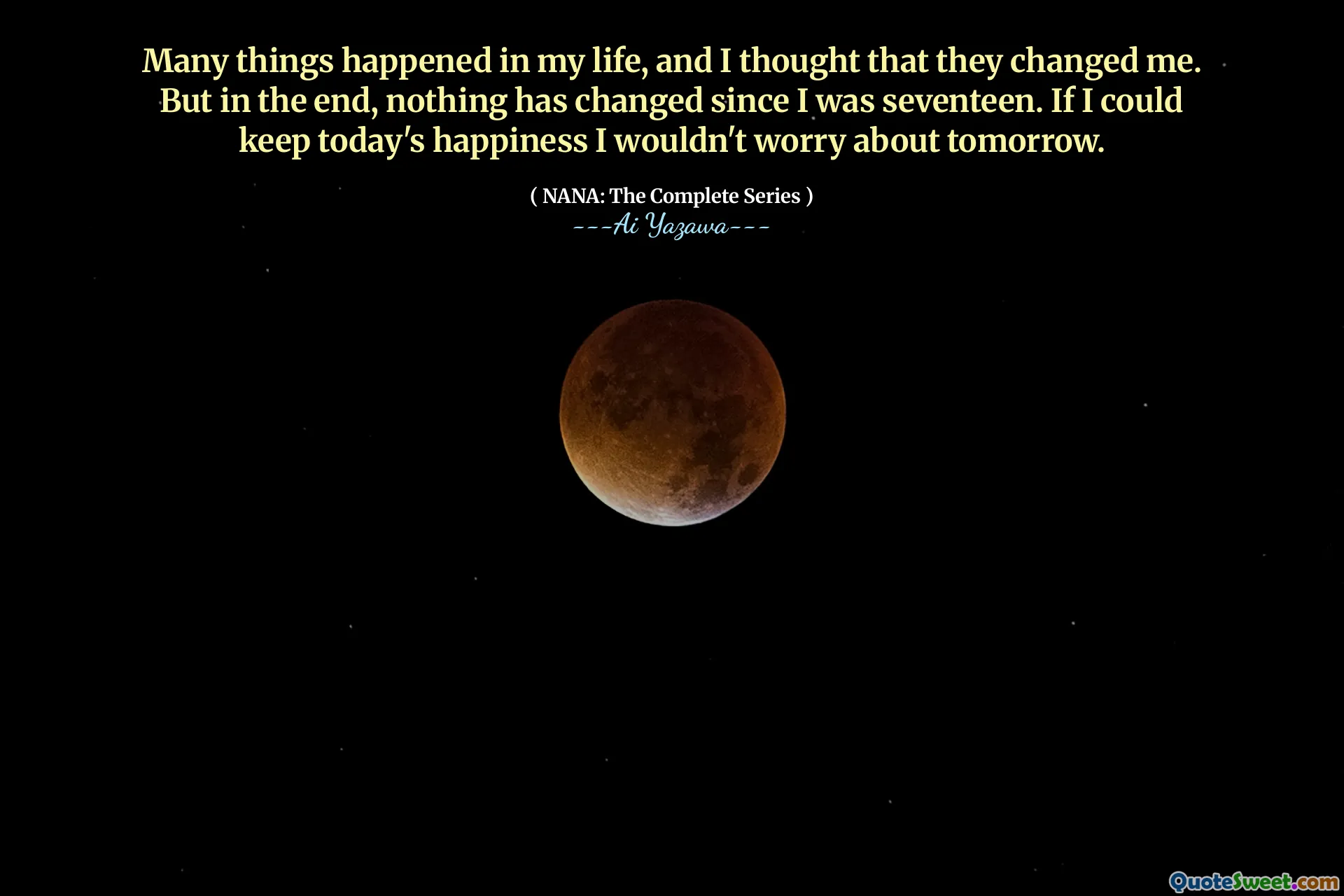
Many things happened in my life, and I thought that they changed me. But in the end, nothing has changed since I was seventeen. If I could keep today's happiness I wouldn't worry about tomorrow.
This quote from Ai Yazawa's "NANA: The Complete Series" encapsulates a poignant reflection on the nature of change, growth, and the elusive pursuit of happiness. The speaker expresses a paradoxical realization: despite the many experiences that seemed transformative, their core self remains largely unchanged since adolescence. This tension between perceived growth and enduring essence speaks to a universal human experience—the desire to evolve while clinging to some fundamental aspect of identity.
The phrase "nothing has changed since I was seventeen" suggests a deep introspection into the permanence of certain traits, feelings, or perhaps unresolved questions rooted in youth. It raises compelling questions about what it means to truly change and whether external experiences lead to genuine internal transformation or merely layer additions upon an unaltered core.
Moreover, the wistful longing "If I could keep today's happiness I wouldn't worry about tomorrow" reveals the temporal nature of happiness. It acknowledges the ephemeral quality of joyful moments and how they can serve as anchors in time, offering solace amidst uncertainty about the future. This desire to hold on to happiness resonates profoundly in today’s fast-paced world, where anxiety and anticipation often overshadow contentment.
The quote invites readers to contemplate the balance between change and continuity within themselves and to appreciate the transient happiness that life offers without becoming consumed by fear of what lies ahead. It encourages embracing the present moment as a source of strength, even when the journey of self-discovery is fraught with questions about identity and transformation.




